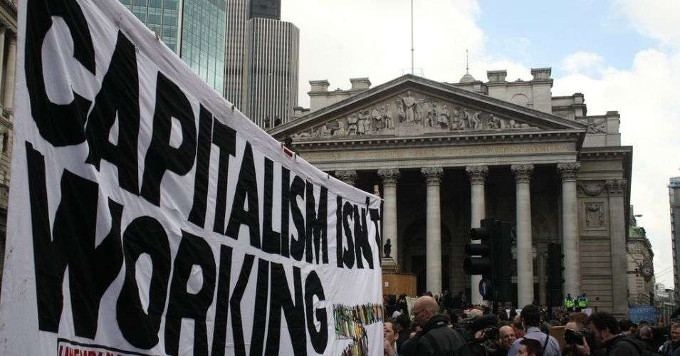
By Ted Morgan | Common Dreams
There is, perhaps, a silver lining in the dark cloud of anxiety, fear, suffering, and death brought to us by the coronavirus pandemic. Namely, a growing, intense awareness that we are all one. We humans. The entire globe is engulfed by this disease.
Similar glimpses of this awareness once came from the image of a fragile blue planet photographed from the moon. Scientists aren’t alone in reminding us that climate change and/or nuclear Armageddon also pose the same kind of “shared fate.”
But now we can all see it and feel it. We are connected in fate to everyone else on the planet, including those who are normally invisible to us. Feeling our own vulnerability, we feel more profoundly the suffering of others around the world.
While repeatedly misled by a juvenile president who simply makes stuff up, this administration has taken the neoliberal creed practiced by his predecessors to a new extreme.
People are reaching out to help others, shopping for shut-ins, sending thanks to health care workers, ordering food from restaurants to help keep them going, etc. Thanks to the internet and media we can feel the spirit of our fellow humans singing from the balconies of Italy, Spain, China, and Iran. If we can get outside to walk, we are often greeted warmly by smiling strangers. And we are unhurried. What’s the point of rushing?
What a contrast to life as we usually know it. What would life be like if we normally acted as if we were all one? What if our political and economic systems were not structured around being competitors, adversaries, and enemies of others, systematically repressing our fundamental empathy for our fellow humans?
World religions teach us the fundamental principle that we are all one. Yet, as institutions, they often help to fuel wars and indoctrinate people to be obedient, while failing to challenge the very systems that violate their ethical principles.
Our capitalist economy produces inequality and thrives on the stratification and status anxieties that inequality breeds. In the neoliberal version we have been living under for 40 years, everything has been made subservient to that system. Government as a form of collective action through which we can realize desirable public goods has largely disappeared, replaced by its contemporary owners –for that’s what they are— pursuing their self-interests.
Which brings me back to the coronavirus. While repeatedly misled by a juvenile president who simply makes stuff up, this administration has taken the neoliberal creed practiced by his predecessors to a new extreme.
Thus collective action is a last resort. Mobilizing government to anticipate and plan for a pandemic like this one, to ensure the nation is well stocked with the necessary equipment, or to impose quarantines to contain the spread of the virus –all are contradictions of the neoliberal creed. As someone put it, the coronavirus is neoliberalism’s Chernobyl.
To top things off, stimulated by concern for the falling stock market, the government generates an unprecedented 2.2 trillion dollars in aid, the greatest proportion going to corporations whose profits have been endangered by the pandemic. That, too, is normal fare for neoliberalism –and, for that matter, our political system generally. And now, what else, talk of an additional tax cut geared to higher-income people?
While we face a shared fate, suffering from the coronavirus will not be the same for everyone. Outside of the greater vulnerability of older people, millions in this country and around the world will not be able to get access to adequate health care. Children in crowded cities have far higher rates of asthma, making them at risk from the virus. Health care workers, Amazon workers, delivery people are also far more susceptible, in good part because of inadequate protective gear.
Yet, neoliberal capitalism will not, and cannot, provide universal health care. How telling, then, that a progressive candidate like Bernie Sanders is repeatedly challenged by “who will pay” for Medicare for All, and “what about the deficit”? Yet a one-shot $2 trillion government expenditure for the coronavirus, and questions about the deficit and who will pay are brushed aside.
In the end, the coronavirus is an invitation to go forward in a different way, democratically, as if we were all one. In fact, we have to learn how to do this if we are going to avoid the ultimate shared fate. One difference: we the people will need to lead the way.

















